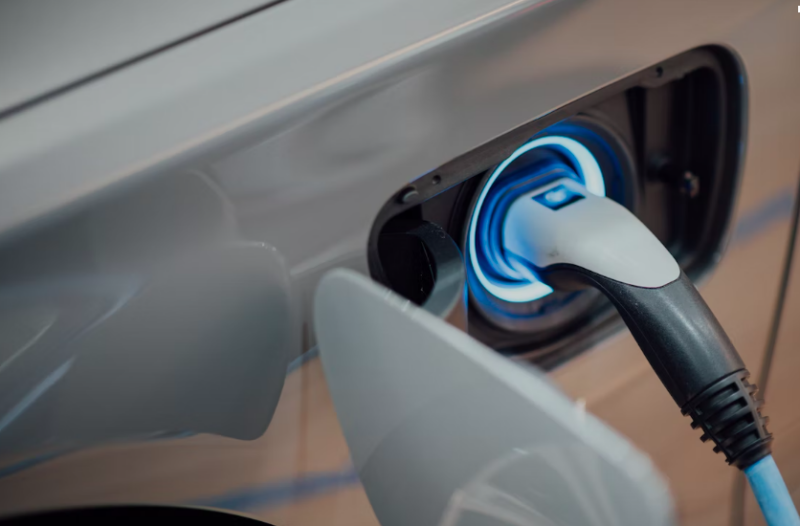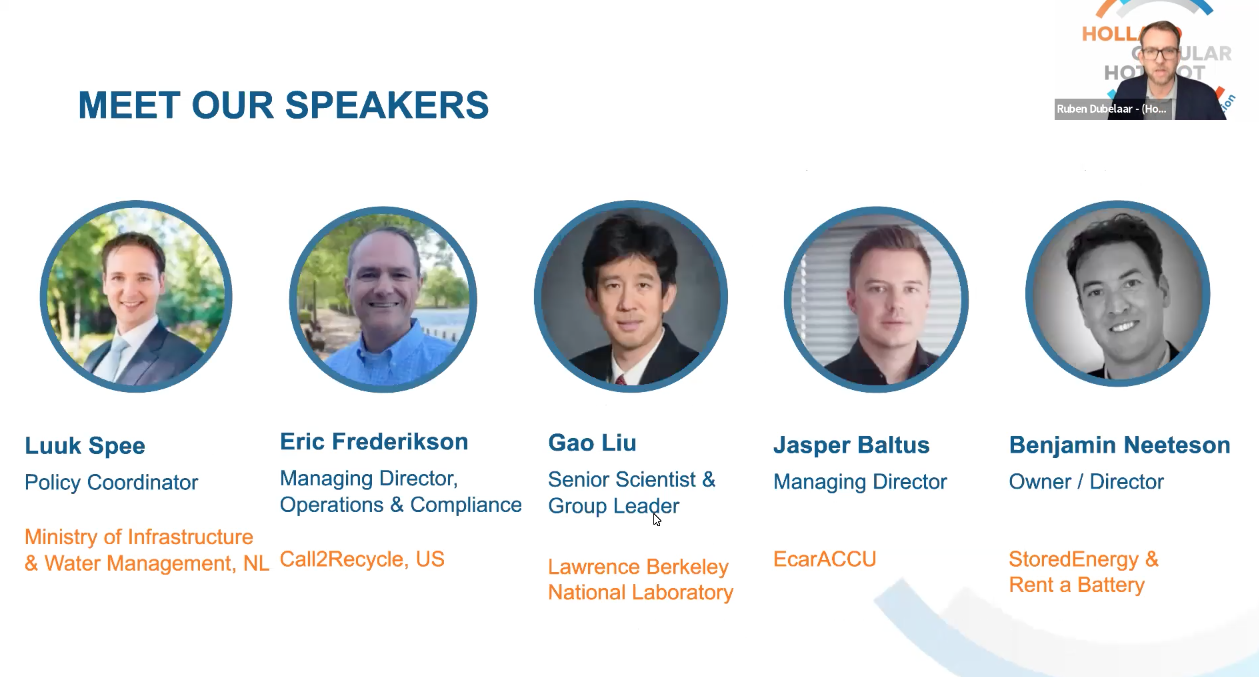Webinar: Circular Lithium-ion Batteries in NL & US
March 09, 2023
In collaboration with the Embassy of the Kingdom of the Netherlands in Washington D.C., Holland Circular Hotspot hosted their first-ever webinar on circular batteries. The aim of this interactive session was twofold: connecting Dutch and American actors in the battery value chain and identifying market and research opportunities between the two countries.
During the webinar, entrepreneurs, scientists and policy experts shared their insights on the current challenges and developments at both market and policy levels in this complex global supply chain. The guests presented and commented on pioneering business practices and state-of-the-art technologies, followed by a panel discussion with Q&A.
Did you miss the event? Scroll down to rewatch it on YouTube and learn about our key takeaways.

Key Takeaways on Latest Developments & Trends in the Circular Batteries Value Chain in the US and the Netherlands
The speakers’ panel included stakeholders from both the public and private sector, and from both the US and the Netherlands. The 5 presentations and the closing discussion aimed at addressing a few ‘hot topics’ when it comes to making lithium-ion batteries circular. What are policy developments to watch at national and international level? What technologies in battery design, reuse, repair and recycling are paving the way towards closed loops? How are challenges overcome and opportunities created for crucial market actors?

Here a few takeaways from the event:
- The Government of the Netherlands is actively working to promote R&D and innovation to increase battery capacity and safety. An equally paramount aspect is the creation of a solid battery ecosystem at national level and its integration with international supply chains and partners, so as to foster economic opportunities – as highlighted by Luuk Spee, Policy Coordinator at the Dutch Ministry of Infrastructure and Water Management
- There is a growing trend in emerging voluntary EPR schemes for li batteries across the US. Interestingly, legislation for mandatory schemes has been linked to growing safety concerns both for citizens and at recycling and treatment plants, rather than to environmental concerns. EV batteries are not yet included in such schemes, so manufacturers are pressing governments to retain responsibility of recycling, metals and materials through the upcoming bills – as shown by Erik Frederikson, Managing Director Operations and Compliance at Call2Recycle, NGO dealing with EPR for rechargeable batteries
- Battery recycling is a matter of urgency. By 2040, a minimum of 40% of all battery materials will need to come from recycling activities. This calls not only for increased recycling capacity and improved recycling technologies. But also, for a truly circular design of batteries – as advocated by Gao Liu, Senior Scientist & Group Leader at Lawrence Berkeley National Laboratory
- Reuse of battery packs in Holland has increased exponentially over the course of the last 5 years and it will continue to grow. Thanks to groundbreaking technology, second-life batteries can have multiple destinations and functions. Repair is always better and less costly than reuse from a value retention standpoint – as explained. When repair isn’t possible, reuse is still better than recycling. – by Jasper Baltus, Managing Director at EcarACCU
- The expansion of e-mopets in the Netherlands has opened opportunities for new circular business models such as e-moped battery as a service. Such schemes are very convenient for sharing mobility companies whose batteries degrade fast and are expensive at end of life. Reusing these batteries results in great environmental gains, since their lifespan is extended of 4-to-6 years in their second application as energy storage systems for homes – as showcased by Benjamin Neeteson, Owner-Director of StoredEnergy & Rent a Battery
